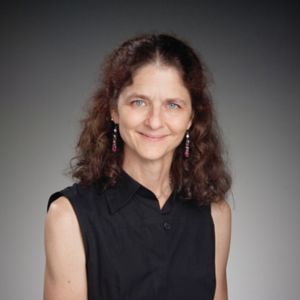St. Jude Family of Websites
Explore our cutting edge research, world-class patient care, career opportunities and more.
St. Jude Children's Research Hospital Home

- Fundraising
St. Jude Family of Websites
Explore our cutting edge research, world-class patient care, career opportunities and more.
St. Jude Children's Research Hospital Home

- Fundraising
Histiocytic disorders are the focus of annual meeting at St. Jude

While the origins of histiocytic disorders may vary, the results are the same: Overproduction of certain white blood cells. That can lead to accumulation and overactivation of the cells, which can drive inflammation and other problems.
Imagine parenting a child with a disorder so rare that the correct diagnosis is a challenge. Finding enough other children with the disease for research to improve understanding and treatment is difficult. Generating interest or funding for the work is even tougher.
That’s what the families of children diagnosed with histiocytic disorders, such as Langerhans cell histiocytosis (LCH) and hemophagocytic lymphihistiocytosis (HLH), often face. This family of diseases are rare, related and often fatal. While the causes vary or in some cases are still unknown, the disorders share a common feature: Overproduction of white blood cells called histiocytes. The results range from relatively mild symptoms to life-threatening organ damage and tumors.
Nov. 2–5, St. Jude will host the Histiocyte Society annual meeting. The event will bring together the top researchers and clinical specialists working in the field to discuss the latest findings from the laboratory and the clinic.
The aim is to provide multidisciplinary treatment recommendations to referring physicians and their patients with LCH and related rare histiocytic disorders. The annual meeting comes as St. Jude researchers plan for an upcoming clinical trial of the drug ruxolitinib for treatment of HLH. The planning follows promising results from St. Jude preclinical research published earlier this year in the journal Blood.
An editorial in the journal called the preclinical data compelling. The commentary’s authors noted that the study suggests some patients may receive more benefit from ruxolitinib than from treatment with agents that block only a single cytokine, such as interferon-gamma.
“Future clinical trials are clearly indicated,” said Kim Nichols, MD, St. Jude Cancer Predisposition Division director, who led the preclinical research. The upcoming clinical trial will be run by Melissa Hines, MD, of the St. Jude Department of Pediatric Medicine.
“St. Jude Children’s Research Hospital has been treating children with histiocytosis for nearly 50 years,” Nichols said. “These are often devastating diseases with disastrous outcomes. At St. Jude, we have a passion for helping to improve cure rates.”
Histiocytic disorders 101
Histiocytic disorders affect children and adults. The estimated incidence varies by disease. HLH, for example, is diagnosed in fewer than 1 out of every 50,000–100,000 children per year. LCH develops in about 1 in every 200,000 children annually.
St. Jude experts treat about two dozen histiocytosis patients annually and provide consultation services to many more.
For some HLH patients, the cause is an inherited gene mutation. For others, evidence suggests the immune problems are a result of certain infections, cancers or autoimmune disorders. LCH, on the other hand, is rarely, if ever, caused by an inherited gene mutation. Instead, LCH is caused by sporadic gene mutations in histiocytes or their precursors.
While the origins may vary, the results are the same: Overproduction of certain white blood cells. That can lead to accumulation and overactivation of the cells, which can drive inflammation and other problems.
Treatment ranges from disease monitoring to chemotherapy and allogenic blood stem cell transplantation. Survival rates for children vary widely, from 99% for children with low-risk LCH to about 50% for children with HLH.
Histiocyte Society meeting
The Histiocyte Society meeting will include oral presentations, education sessions, clinical trial updates and poster sessions on HLH, LCH and less common histiocytic disorders. Speakers will discuss the disease mechanisms of LCH and the latest on the inflammatory response. The presenters include Thirumala-Devi Kanneganti, PhD, deputy chair of the St. Jude Department of Immunology. Participants will also have opportunities to meet with disease experts.
Nichols and Carlos Rodriguez-Galindo, MD, St. Jude executive vice president and chair of Global Pediatric Medicine, are the meeting organizers. Rodriguez-Galindo is also a founding member and co-leader of the North American Consortium for Histiocytosis or NACHO. The group includes clinicians and researchers from nearly three dozen institutions who are focused on developing new, more effective treatments.
“This is an exciting time in this field,” Nichols said. “Recent advances in understanding the genetic changes that underlie these disorders raise hopes for developing targeted therapies to improve patient outcomes.”






